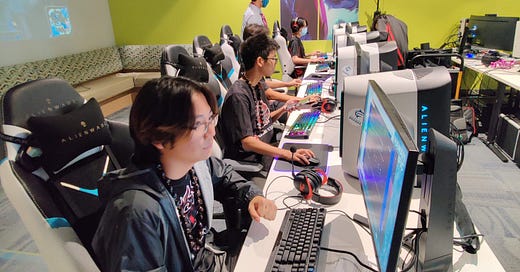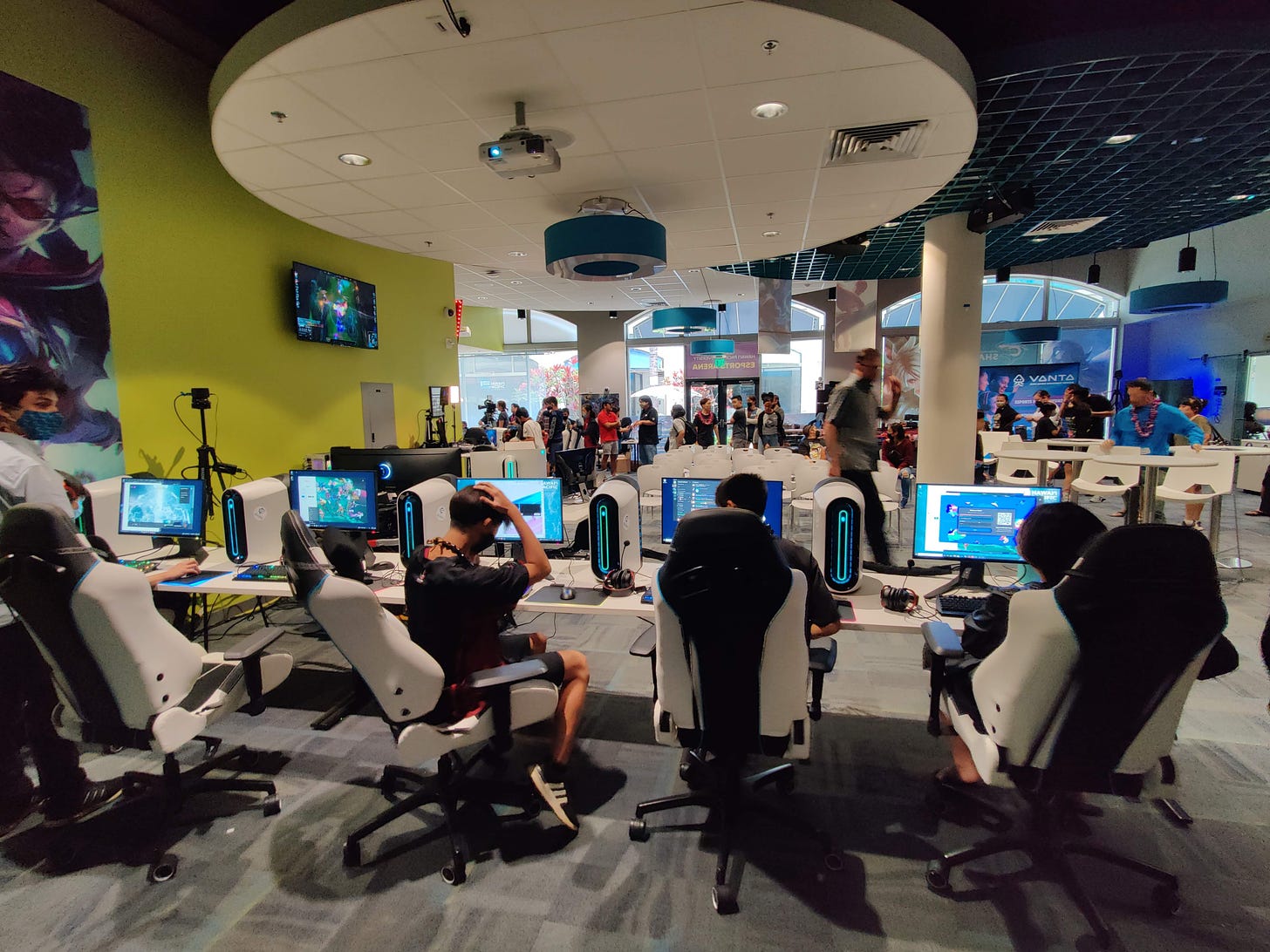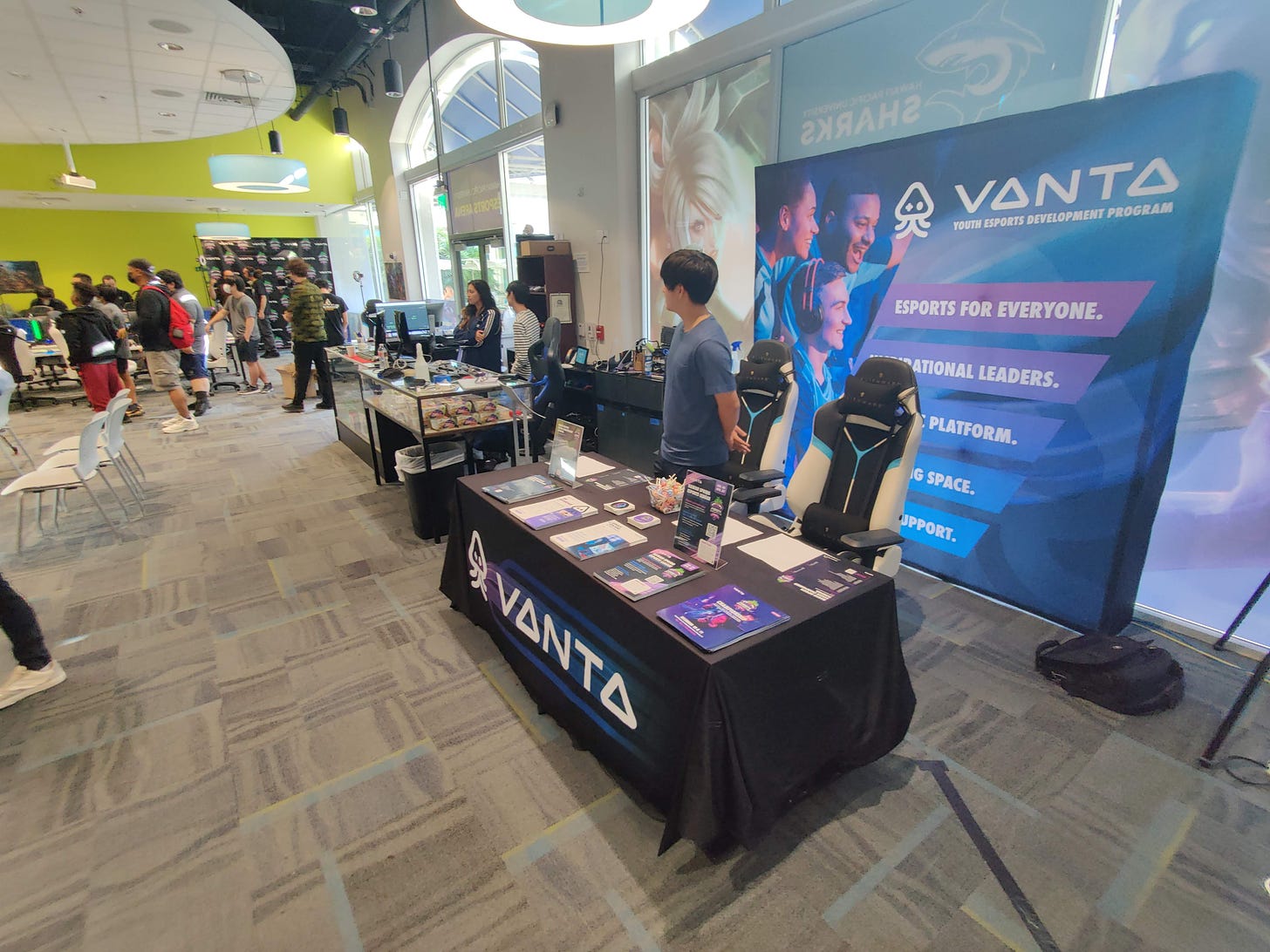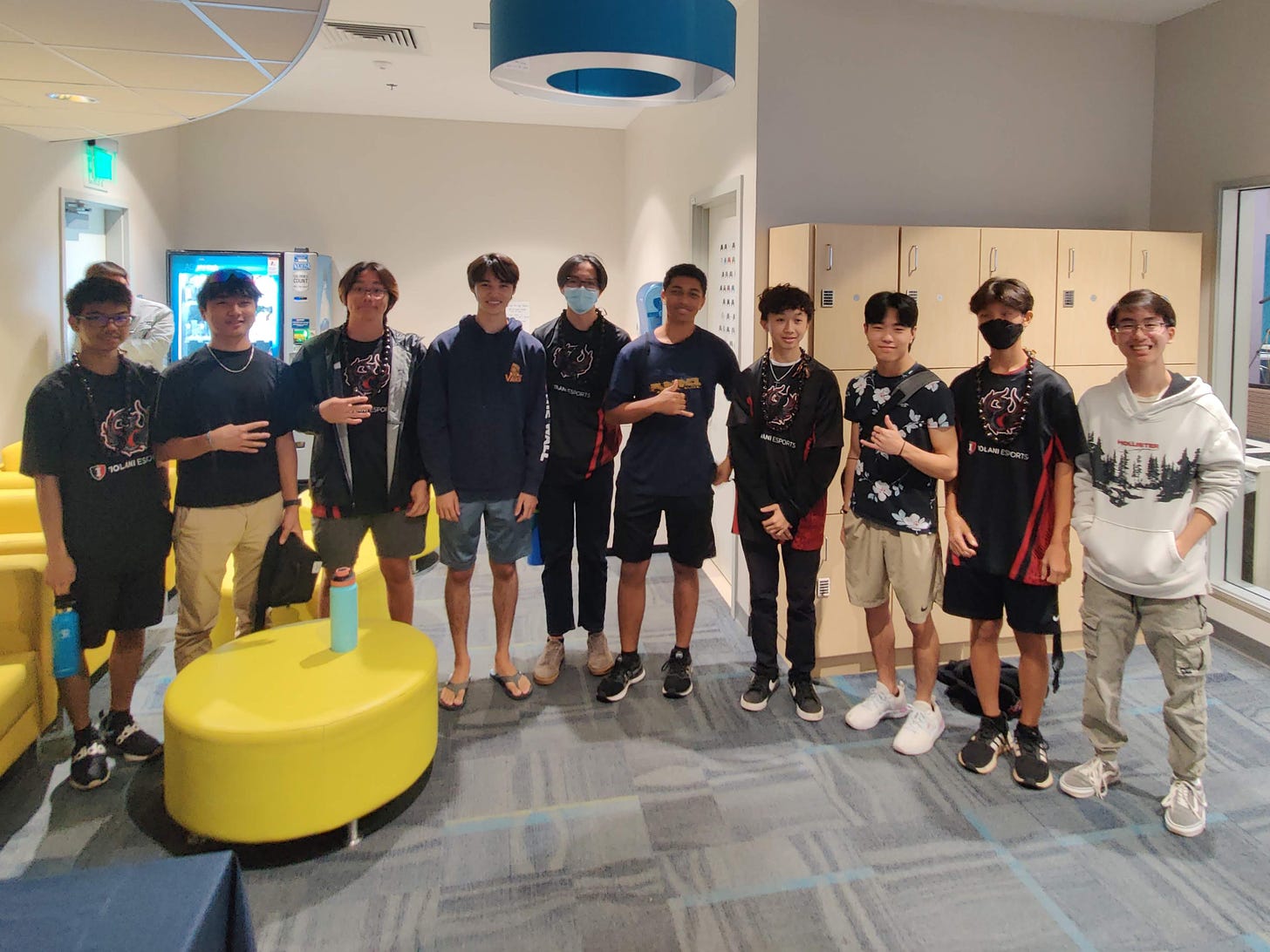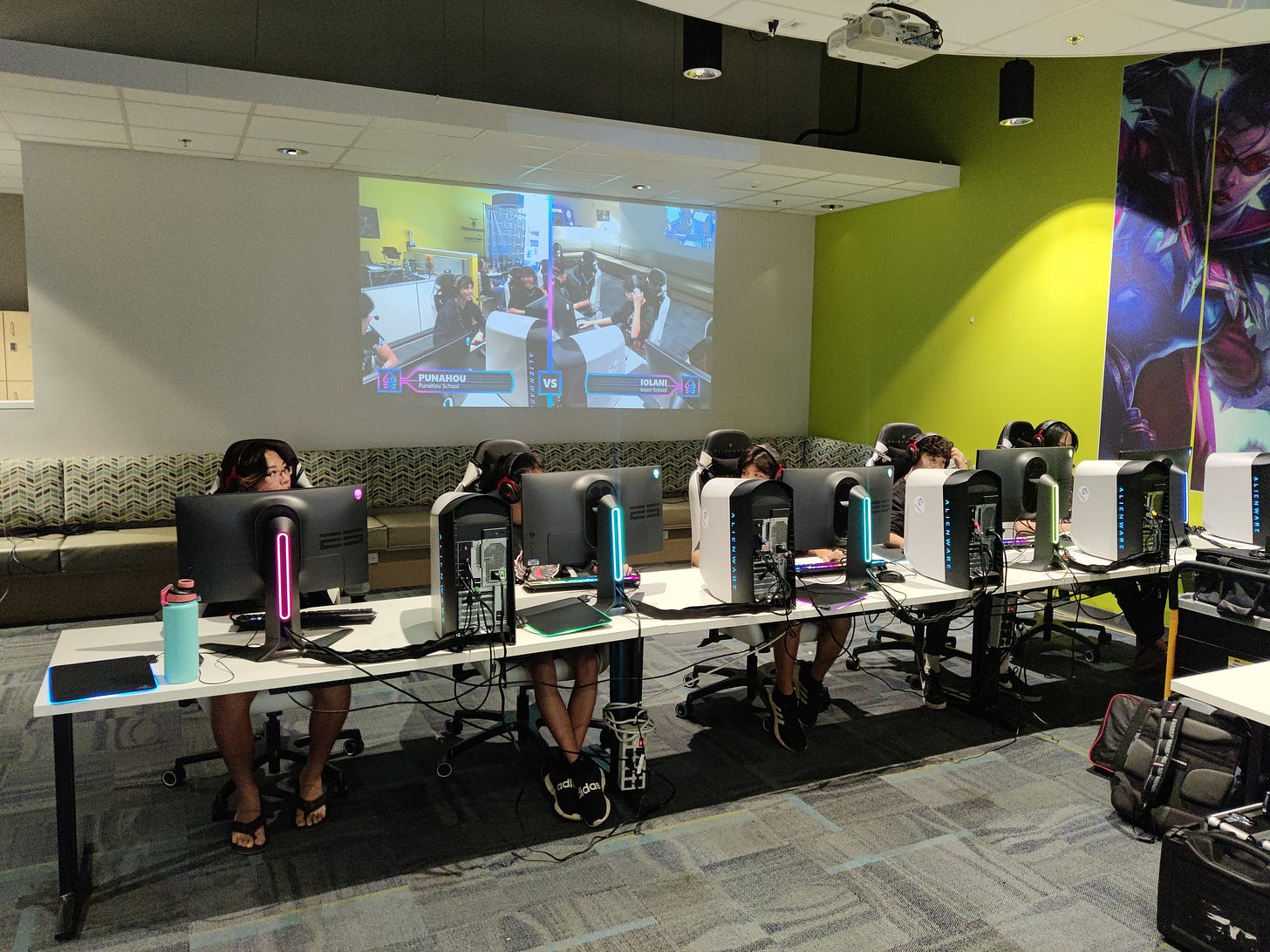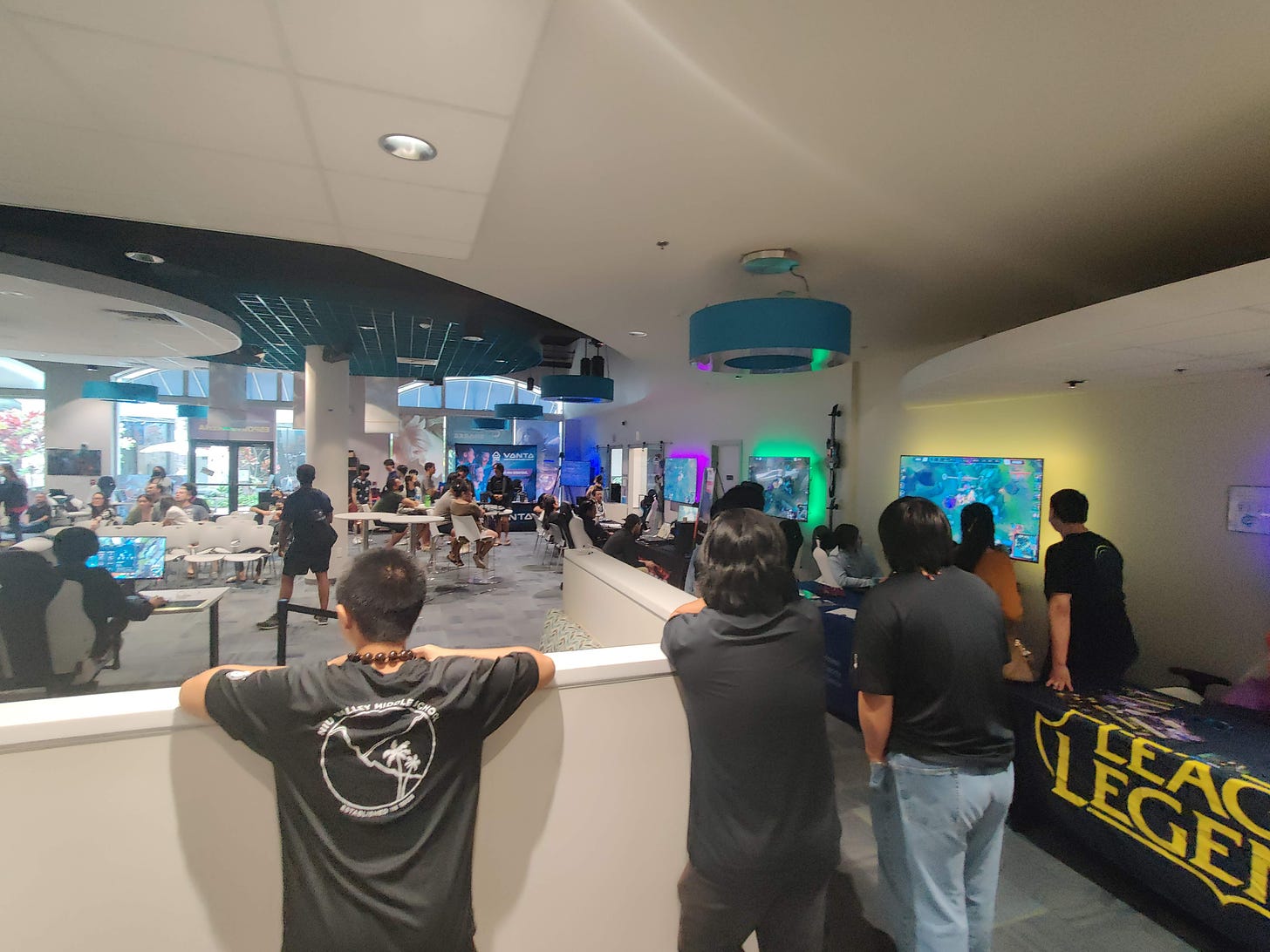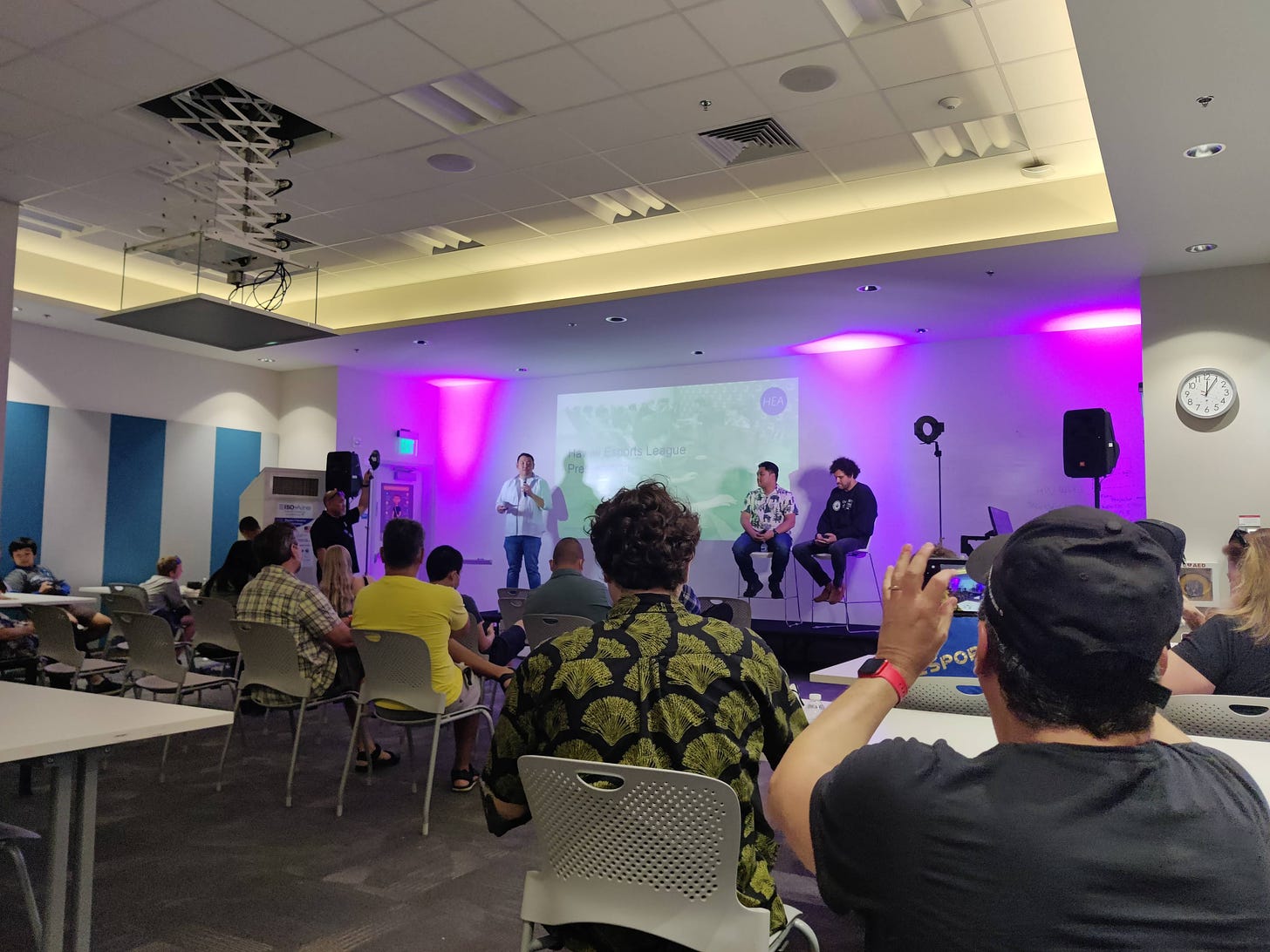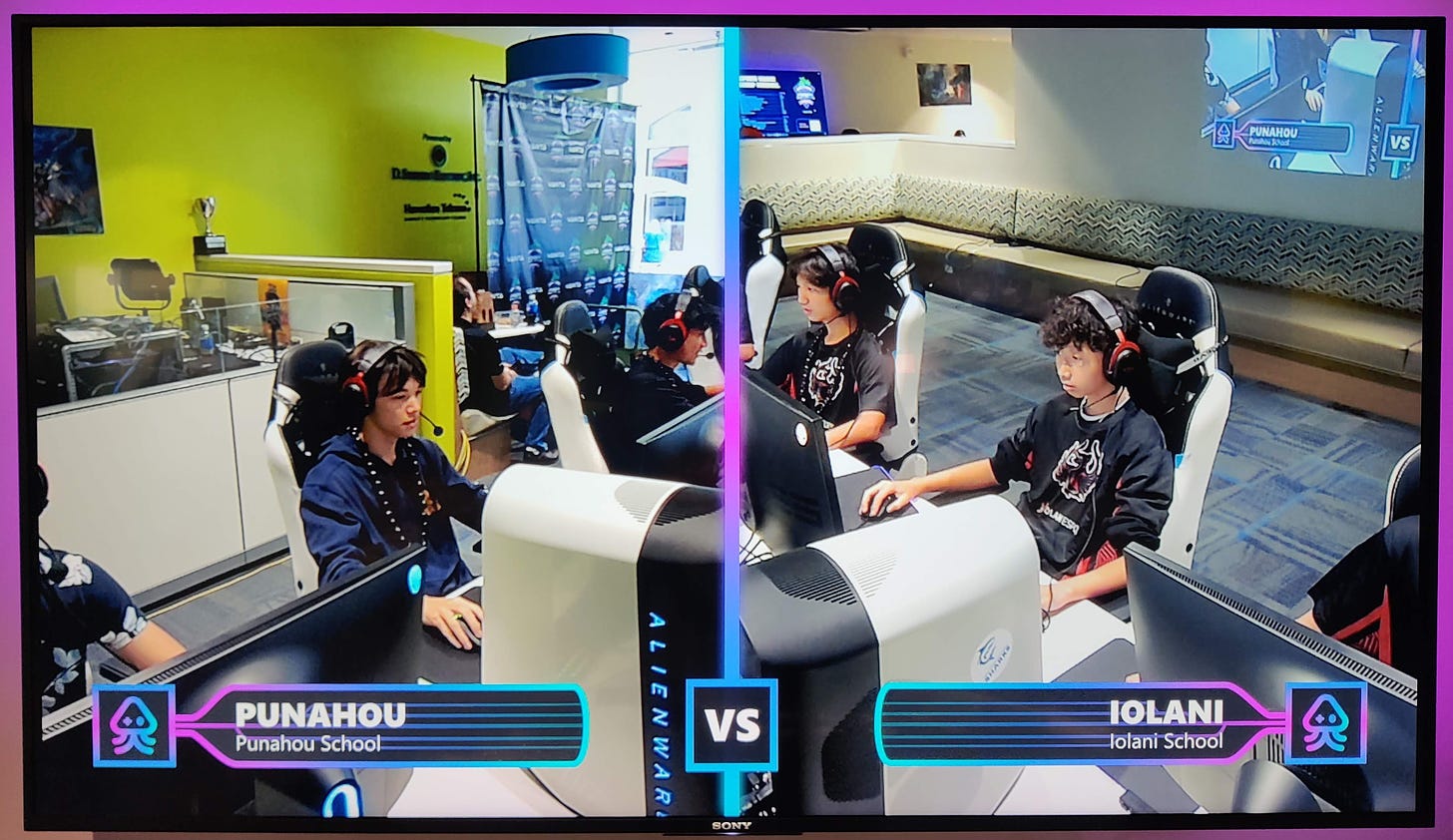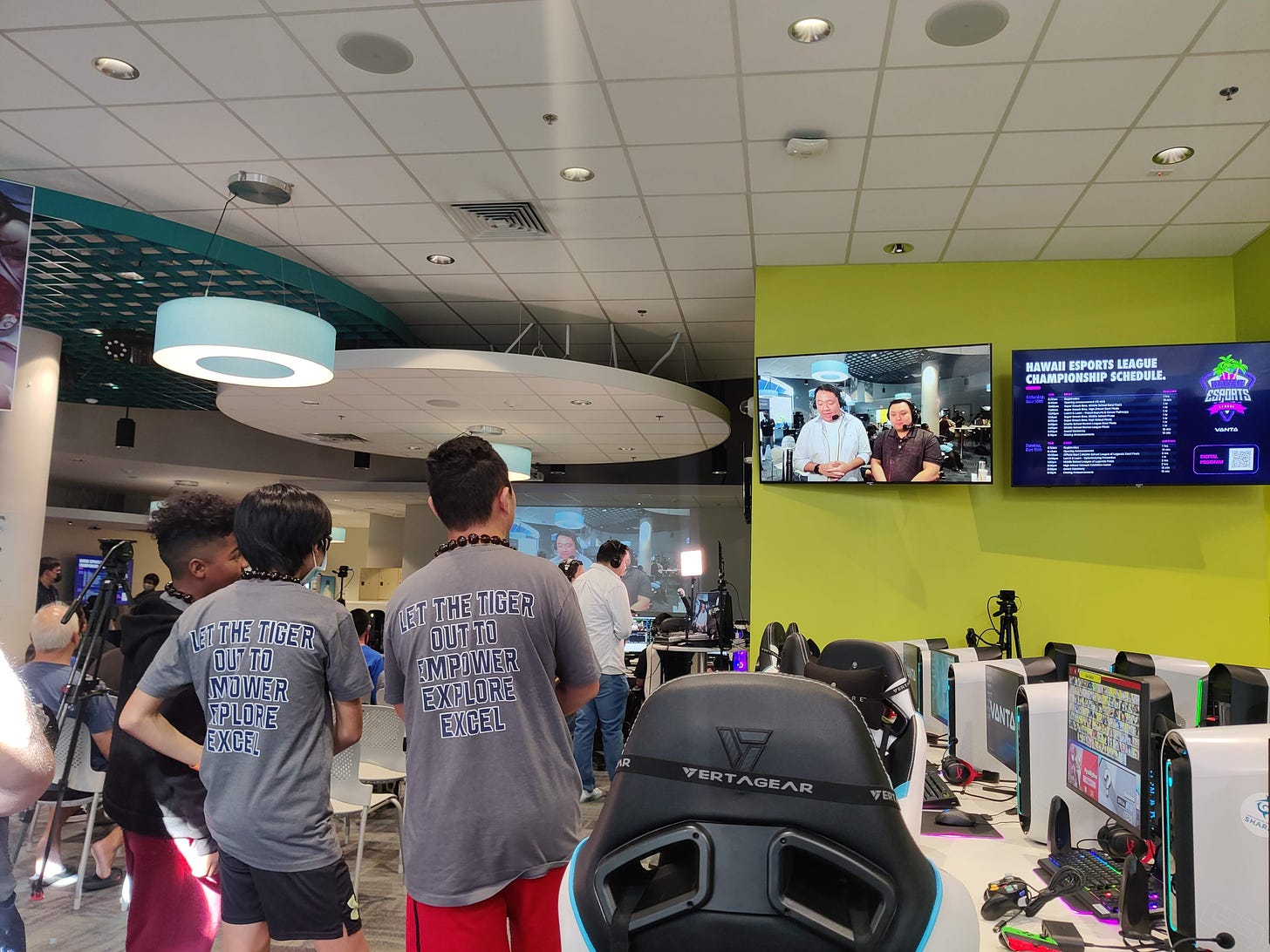
Vanta Leagues Hosts Second Hawaii State Esports Championships
The Hawaii startup now has 11,000 members in 45 states, with its second Hawaii playoffs set for this weekend.
Is this article too long for your email inbox? Click here to view it on the web, or read it in the Substack app, which supports additional features like Notes and Chat!
Competitive video gaming, or esports, is a bonafide industry, representing a $1.6 billion market across over half a billion players worldwide. Hawaii has sought to grow the esports community and related business opportunities with college game design courses, a new esports lab at the Waipahu Public Library, a 3,000-square-foot esports arena at Hawaii Pacific University, and a solid reputation for hosting international esports events.
If gaming competitions at HPU and the University of Hawaii are the equivalent of collegiate and varsity sports, then Hawaii-based Vanta Leagues is the pre-varsity pipeline, focused on high and middle school gamers, and providing the platform to organize competitions and ensuring a collegial, safe community.
This weekend, Vanta League is hosting its second Hawaii state championships, featuring over two dozen school teams competing across nine different games—plus a college fair. But while the company is based in Hawaii, it has a national footprint, with leagues in nearly every U.S. state and especially strong adoption in Texas, California, and Florida.
“The growth has been amazing,” says Vanta co-founder Ed Lallier, who with partner Pat Cronin was named ‘Tech Entrepreneur of the Year’ last month by the Hawaii Venture Capital Association. “A year ago we only had 600 users, last fall we had 6,600 users, and now in the spring, we've got 11,000 users.”
Lallier credits Vanta’s participation in the Blue Startups accelerator program and Hawaii’s diverse, tech-forward population as key to his success.
“Hawaii is really important to us, mainly because it's the perfect focus group for us to test out stuff and see if it works,” he says. “You’ve got a million people all together, we have to make that work, and you also have a really high aptitude for gaming here.
“If we can make it work here, we can make it work on the mainland, and that's what we’ve found—it's worked famously,” Lallier says.
As for being a graduate of the Blue Startups accelerator—which counts gaming as one of its main sectors—Lallier couldn’t be more complimentary.
“Being at Blue was super important, helping us hone our business model, and it really made us better executives and better managers,” he recalls. “We had a lot of ideas, and Blue said, ‘Keep it simple, keep it focused, and make sure you get product market—don't go if you don't.’”
The pandemic was a double-edged sword for Vanta, as it was for all businesses.
“The goalposts have changed for everybody, but we've been in a really good spot because of the teachings and guidance of Blue,” he says. “They made sure we were mindful of this, mindful of that, looking to grow and scale but only after having a solid revenue model.”
Lallier says that he feels Vanta is onto something, even as tons of attention and energy are flowing into the market.
“No one's really cracked that nut for esports,” he says. “You’re looking at a ton of pro teams right now, but they’re not making money, and 80% of their revenue is sponsorships—and when the market is down, that pot of money dries up, then your next revenue channel is… hoodies? Are you kidding me?
“We don't want to be an apparel company, we're a gaming company,” he adds. “I think we because of Blue we were able to make the right decisions and strategically build a business that allowed us to be smarter and more nimble than our competitors.”
The origin of Vanta
Lallier’s professional background is not gaming. It’s not even in tech.
“Prior to Vanta, I was working in the financial services industry for 20-plus years,” he says. “Still, I've always been a gamer—both my kids are gamers.”
Between generations, however, online games have changed quite a bit.
“When we gamed historically, we tolerated the toxicity that’s in gaming, and it’s pervasive,” he continued. “Today there's over 3 billion gamers in the world, and there's no referee, there's no adult in the room, there's no cop.
“But we all love the games and we try to bundle ourselves into communities where we all know each other and we feel safe, but that sadly that doesn’t prevent somebody from targeting or attacking someone.”
Sadly, during COVID, that’s what happened to Lallier’s son, who was cyber-bullied in online games. His friend group, in fact, was specifically attacked by an adult who made it a habit to terrorize kids.
“It was a really traumatic moment, and I felt compelled to do something about it, so I started an organization that makes it safe for kids to game with adult supervision,” Lallier says. “That's what we started out as, and that has since changed to be a lot more.”
Lallier admits that gaming is an attractive, growing, and competitive sector.
“It felt like in the last couple of years there was a new esports company every week that popped up—it was very much a cottage industry, the barrier of entry is low—and the challenge is figuring out how you make a business sustainable, because gamers have so many choices out there,” he said.
Inspired by his son’s experience, and knowing how much concern there was over the safety of children online, Lallier aimed for the far end of the field.
“We decided to do the hard stuff,” he says.
“All our competitors, they focus on high school, because if you work with kids under age 13, you have to deal with COPPA, the Children's Online Privacy Protection Rule,” he explained. “You have to follow federal law to protect kids online, and it takes a lot of time and money to build that, and we felt like that's the path to go because if we didn't, then we're just like everybody else, and we're really aren't really adding a lot.”
Besides, gamers get started much, much earlier.
“Anyone who's been in the gaming industry knows that kids are gaming super young—so why do we have to start teaching and doing all these programs in high school?” Lallier asks. “Kids are starting in elementary, middle school, so we felt compelled to do the right thing, and to really start teaching best practices in those early days.”
At first, Vanta was conceived as a coaching company, modeled after a typical local sports league. But once programs reached the gameplay phase, the real need became apparent.
“We realized we had to build another vessel by which we can do this that's super safe, that’s a safer platform than Discord, which is the ubiquitous resource to communicate while you’re gaming, but we all know how dangerous it is, if you just look at the news—anything can happen and it’s not really checked,” Lallier says. “So we created a technology platform that is super locked down, and we put a lot of emphasis on features that make it super safe—both with the human element as well as the AI side.”
Once the technology was in place, Vanta’s offerings naturally grew from there.
“We provide a platform that's COPPA compliant and we provide competition and league management for both leagues and camps,” he says. “We also do coaching for the players, we do professional development for teachers, do in person events.
“These things have just spawned from itself, but all of it is really to support the core essence, which was to create a safe and productive league,” he adds. “We differentiate pretty broadly, and that creates another moat that protect our brand, and I think that's why we've been very successful recently.”
Of course, the communications platform that Vanta has built—with effective and scalable moderation—can apply to a number of communities.
“Gaming is massive, it's bigger than TV and movies combined, and women 50 years and older are the largest demographic of gamers,” Lallier said. “But we built this platform, and now it has a lot of multiple uses beyond gaming and beyond the K-through-12 space.
“I think we can really extend beyond the gaming industry because it's very ‘Red Ocean’ right now,” he says.
Opportunities ahead
Lallier envisions a strong, interconnected network for esports in Hawaii.
“One idea going forward would be to combine both local and mainland participants, and then tying things into a collegiate invitational event,” he says. “Our goal is to showcase a direct pipeline from elementary and middle school to high school and college.”
After that, the sky’s the limit.
“There's over 200 colleges out there that give you a full athletic scholarship for esports,” he says. “Parents don’t know this, and it’s amazing.”
And gaming is a great equalizer from the Diversity, Equity and Inclusion standpoint.
“There's really great gender equality here, as gender doesn't mean anything, race doesn't mean anything, disability doesn’t matter—you're a gamer at the end of the day,” he says. “I think that kind of inclusion is really important for the growth of the sport, and we're seeing a lot of interest in it.”
Hawaii’s gaming champions
The fall state championships drew 450 players from 28 schools. For the 12-week spring season, there were almost 1,000 players from 52 schools. With the quarterfinals completed a few weeks ago, this weekend brings the main event.
“Saturday is the high school competition, and Sunday is middle school and elementary schools,” Lallier explains. “In high school, the kids are a lot more mature, and we’ve found that elementary and middle school kids interact very similarly.”
And there will be many different games played: Super Smash Bros., Ultimate, Valorant, Rocket League, Overwatch 2, Knockout City, Apex Legends, Fortnite, League of Legends, and Chess.
The championships, which will be held at HPU’s esports arena, will fill two days with competitive gameplay, accompanied by live commentators, and interaction between players, teams, and fans. The event will also be livestreamed on Twitch and recorded by Olelo for cable TV broadcast.
“I highly recommend you come in person,” Lallier says. “It’s exciting, it’s rowdy, it’s highly competitive—it’s like going to Vegas or an NCAA tournament.
“It is fun, but it's not chaotic,” he adds. “And unlike other events, you can actually see the game, and there’s someone educating the audience on what you’re looking at, and you’re getting educated while you see the elements and strategies that go into competitive gaming.”
There will be guest speakers, sponsors will have booths, there’ll be food, and there will be a gaming area for kids dragged along by their parents with Pac Man and NBA Jam.
“There's something for everybody, it's a family-friendly event,” he says. “It's definitely worth going, as you're not going to get that level of experience watching it online where sure, you’re going to see the game, but there's a whole different vibe.”
Register for the Hawaii Esports League Spring 2023 Finals here.
Photos courtesy Vanta Leagues.


